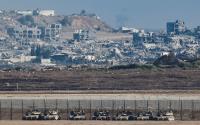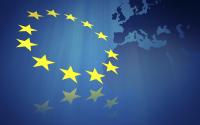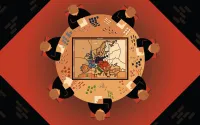5 September 2005Znet
Jesse Jackson and Bruce Gordon are just two of many high-profile Black leaders who have expressed indignation at the description of those displaced by Hurricane Katrina as 'refugees'. 'It is just wrong', Jackson said, 'they are citizens displaced by a disaster'.
After 9/11, 2001, some victims of war and of bombing campaigns wondered, in writing, whether the experience of being bombed would increase America's empathy towards the rest of the world.
There was, of course, no single response of America to 9/11. It did increase the empathy of some Americans and caused many to question the relationship of the US to the rest of the world. But the net effect was to accelerate the march towards militarism and to strengthen, rather than weaken, the idea that America was different from the rest of the world. The 'War on Terror' was launched, and it featured bombing Afghanistan, a country full of internally displaced people long before 2001 – those people were referred to as 'refugees' in the media. It featured domestic legislation that tightened borders and deported international migrants – some of whom were referred to as 'immigrants', others as 'refugees'. It featured support for Israel in its own military campaigns against the Palestinians of the West Bank and Gaza, many of whom were refugees, though they weren't referred to that way. And ultimately, it featured the invasion and occupation of Iraq, which turned much of the population of Fallujah, among other places, into internally displaced people who, when they are referred to at all, are referred to as 'refugees'.
Nationalism in America did not come from 9/11. It was forged over hundreds of years of conquest of indigenous territories, a process of growth into the greatest power on the continent and then in the world. Racism was built into the ideology from the start, but it was complex as well. Within America, there was a hierarchy that left Black people at the bottom – first slaves, then second- or third-class citizens. But there were also those who were outside America: non-citizens, or to use the legal term, aliens. These people too were victimized by racism, of a xenophobic sort. So there have been two different kinds of racism, and they play out differently. Tragedies bring out the best and the worst in communities. After 9/11 there were many tales of heroism and self-sacrifice in saving lives, and there are countless such tales about Katrina as well. But after 9/11 elites sponsored a cruel nationalism, an impulse first to blame foreigners, and then to strike out at them, expel them, and bomb them. With Katrina, there was no foreigner to blame, only poor and Black people who needed evacuation, water, food, and resources to repair their lives. The government's response to Katrina was a different kind of racism: not hatred of foreigners, but contempt and utter disregard for Black people's lives, and for the extraordinary city they had made.
If 9/11 showed Americans the horrors of being bombed, after Katrina many Americans have the experience of being displaced. The horrific scenes of refugee camps that are the lot of millions of people in different parts of the world are on display in America. Americans also have the experience of a government that is unable or unwilling to help them or protect them, a government that is arbitrary and violent and unresponsive. For Black Americans this isn't new, but it is also much more stark than it has been in a very long time. It seems that the American government is treating Black Americans on the Gulf Coast with the contempt that it normally reserves for the citizens of other countries. After decades of struggle and sacrifice for the right to be full American citizens, Black people are being treated like the rest of the world is treated – as problems to be solved as cheaply as possible, not fellow citizens and human beings with dignity.
Are Jackson and Brown right, then, in bristling when they hear Black Americans referred to as 'refugees'?
The reason the term 'refugee' has a stigma attached is not because of what the refugee is – it isn't like the label 'criminal', for example – but because of how the refugee is treated. A refugee is someone who is kicked around, disregarded, made invisible, someone with no protection and nowhere to go for help. Someone who, in other words, is being treated as those who have been displaced by Katrina have been treated. Calling them 'refugees' is accurate: treating them that way - or treating any human being that way - is unconscionable.
The idea that America is unable to bring its awesome wealth and power to bear to save its own citizens or one of its major cities is one that is shocking to the rest of the world. But beneath that shock there is also a glimmer of hope – hope that, before it is too late for all of us, the idea that Americans rate more than non-Americans will disappear.
Hope that the idea might arise that 'citizens' and 'refugees' deserve the same treatment.
Justin Podur is based in Toronto. He can be reached at justin (at) killingtrain.com






